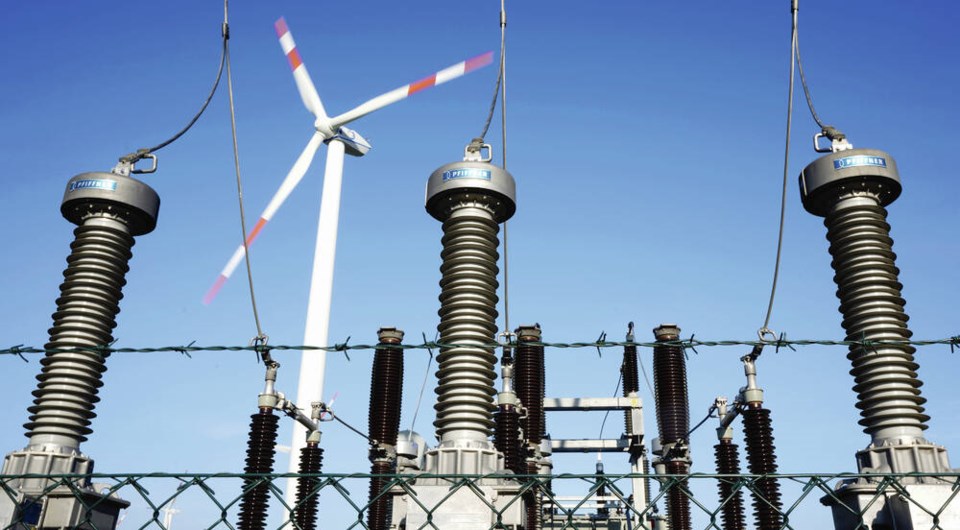People are beginning to catch on that “the road to hell is paved with green intentions.” The green movement’s crusade to replace the 84 per cent of energy currently supplied by fossil fuels with windmills, solar panels and biofuels has led to much talk about energy supply and prices.
But there’s also a profound human impact. Here is my actions and consequences list.
Action: Germany decides to replace nuclear power plants with wind and solar, which prove to be both unaffordable and unreliable, leaving no choice but to import Russian natural gas. Russia invades Ukraine. Germany tries to replace Russian gas with other sources.
Consequences: Gas prices increase by 700 per cent, forcing several European countries to restart shuttered coal plants. EU economies go into freefall while emissions rise faster than ever.
Action: Seventeen Canadian liquified natural gas projects that would have eliminated the need for Germany to import Russian gas were stymied by impossible-to-meet government rules that required emissions resulting from their construction and operation to be “net zero.” The Canadian government’s delusionary “net zero” target also drives policies that stymie exports from this country’s oil reserves, the third largest in the world.
Consequences: Germany faces the Hobson’s choice of continuing to fund Russia’s brutal invasion or face disastrous natural gas shortages. Russia becomes the world oil market’s “swing producer.” Oil prices skyrocket, raising the cost of transportation for both industry and individuals. Inflation wreaks havoc across the globe.
Action: China pretends to reduce emissions while increasing cheap coal-fired power generation. Meanwhile, greens within government implement policies mandating costly and unreliable wind and solar power generation, combined with continually rising carbon taxes.
Consequences: Western manufacturers cannot compete, leaving no choice but to import Chinese goods. China uses the West’s money to produce the weapons needed for global military dominance.
Action: Policies are implemented mandating the blending of corn ethanol into gasoline.
Consequences: A huge reduction in global grain supply. The U.S. is the world’s largest corn producer at 384 million tonnes a year. One third of that (128 million tonnes) now goes to producing corn ethanol. Other countries convert a combined 137 million tonnes of grain into fuel ethanol, for a total of 265 million tonnes.
Ukraine’s pre-war grain production was 74 million tonnes per year. The reality is that biofuel production consumes more than three times that much. Russian President Vladimir Putin’s Baltic naval blockade of Ukrainian wheat, corn and vegetable-oil exports is being blamed for the current food shortages.
But as reprehensible as his actions are, the green movement’s impact on global food supply is profoundly greater than the Ukrainian export reduction.
Action: Carbon taxes drive up the cost of tractor fuel and grain drying. The price of nitrogen fertilizer, which is made from natural gas, rises. Prices for potash-based fertilizers rise due to increased mining and processing costs.
Consequences: Higher prices and reduced supply of cereal grains. Starvation in poor, import-dependent countries.
Action: Environmental zealots campaign for a ban on a product critical to third-world food supply. That product, called Roundup, invented decades ago by chemical company Monsanto, has dramatically improved crop yields for third-world farmers by killing weeds without nutrient- and moisture-depleting cultivation.
From the time of its first development, green activists have attacked it as cancer-causing “franken-science.” But decades of experience and scientific studies from several countries have found that, when used with the same care as any other chemical product, health risks are extremely low.
Consequence: If Roundup is banned, food production in some of the most food insecure countries will decline, causing suffering and starvation.
Action: The Spanish and Dutch governments announce policies to ban livestock production. Farmers fear the same actions in other EU countries.
Consequences: Reduced meat supplies. Destruction of the way of life, income and property values of farmers. Socio-political chaos as farmers protest in Madrid and Dutch farmers block entrances to food warehouses.
The combined impact of cereal grains diverted to motor fuel, carbon taxation on grain farmers and government policies to phase out livestock farming is increasing food costs while reducing supply.
No wonder conspiracy theorists believe the green movement’s ultimate goal is to save the environment through global depopulation.
It’s time for a reality-based fork in the green movement’s road to perdition.
>>> To comment on this article, write a letter to the editor: [email protected]

